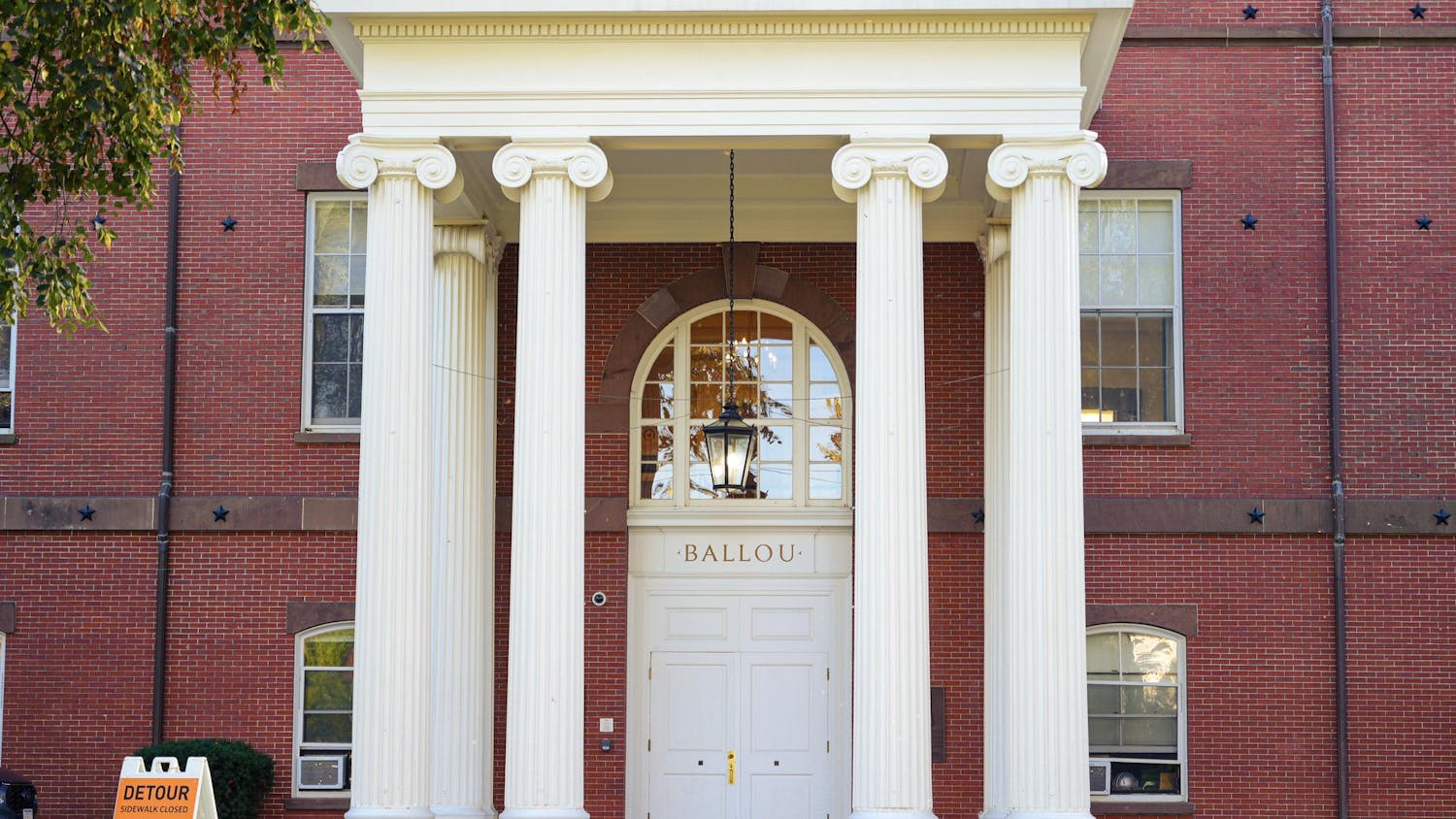COVID-19 vaccine boosters will be strongly recommended — but not yet required — for students across Tufts’ campuses, university officials told the Daily last week. Testing frequency and pandemic protocols are also currently expected to remain unchanged going into the Spring semester.
The guidance comes alongside a rise in cases across the country and the emergence of the omicron variant, which was first detected in South Africa on Nov. 18 and has since been reported in 30 states, including Massachusetts.
Amid omicron’s discovery, the Centers for Disease Control and Prevention hardened its guidance last month to recommend that all previously vaccinated Americans over the age of 18 receive a booster along with their original shots. University administrators cited the CDC’s updated recommendation, a rise in cases across the country and the omicron variant as reasons for eligible Tufts students to get their vaccine boosters.
“We are carefully evaluating CDC and state guidance and have not yet made a decision regarding booster requirements,” Michael Jordan, the university’s infection control health director, wrote in an email to the Daily. “However, getting a booster is probably the single most important thing that that any eligible individual can do to decrease their own risk and to protect their loved ones.”
Adults who received their second dose of Pfizer or Moderna’s vaccine over six months ago are currently eligible to receive either company’s booster. Those who received a Johnson & Johnson shot over two months agocan also schedule booster appointments.
The university does not currently expect its COVID-19 testing frequency or on-campus pandemic regulations to change going into the spring semester. The rules — which include indoor masking, testing twice weekly and abiding by quarantine procedures — are based on suggestions by public health officials, according to Jordan.
“At the moment, we anticipate no changes to the protocols or cadence of testing for the spring semester,” Jordan wrote. “However, we will continue to watch daily case numbers and trends and make data-driven decisions that prioritize the community’s health.”
Students were directed in a Dec. 8 email to schedule their shots either at local pharmacies or through a limited number of doses available at theuniversity’s on-campus clinics.
Tufts was one of several institutions to decide earlier this year that all students returning in person for the fall 2021 semester would be required to be fully vaccinated against COVID-19. By the school’s Student COVID-19 Vaccination Policy,administrators canrefine the definition of a “fully vaccinated” individual to include a booster shot requirement if deemed necessary.
Whether Tufts will decide to require the boosters for its students remains to be seen. Northeastern University, Boston College, the University of Massachusetts Amherst, and Emerson College have allrequired their students to get boosters for the spring 2022 semester.
Thomas Stopka, an epidemiologist at the Tufts University School of Medicine, said a Tufts booster requirement would be “worth considering.”
“[This is] particularly given the large number of universities, the high density of population in the Medford/Somerville and greater Boston area, and the fact that many thousands of students will be coming and going from our campuses,” he said.
School administrators also recommended that Tufts students receive flu vaccines. Cases of the flu and other seasonal respiratory infections have swept through the Tufts community over the past several weeks.
Scientists have scrambled to understand what omicron means for the future of the pandemic; so far, the variant’s prospects remain unclear. Some preliminary studies and observations have suggested that while the new form of the virus may evade the immune system better than other variants of COVID-19, it could also potentially cause less severe symptoms. Overall, many experts say it’s still too early to determine the omicron variant’s threat level.
Epidemiologists have suggested that as we wait to learn more about omicron, members of the public should show caution by making sure they’re up to date on their vaccination. For the approximately 90 million Americans who have not yet received a single shot, this means signing up to receive their first doses; for the rest, it means getting a booster after six months.
“I think the biggest behavioral intervention we can all do is make sure we have at least full vaccination and ideally a booster dose,” Whitney Perry, an infectious disease physician at Tufts Medical Center, said. “I think people who are fully vaccinated, and ideally boosted, can feel relatively comfortable with their protection. That’s not to say they won’t be infected, but they can feel relatively comfortable that they are not at high risk of severe disease or illness.”
Among those fully vaccinated in the U.S. population, 26% have received a booster thus far, according to data from the CDC.
Some early signs point to the booster’s potentially encouraging ability to neutralize the omicron variant. An Israeli study published over the weekend found that a booster dose of Pfizer-BioNTech’s vaccine grants effective protection against omicron. The finding backs up preliminary data released by Pfizer last week, which said that individuals who received a third booster dose developed 25 times more omicron antibodies on average than those who had only gotten two doses. Pfizer also claimed that two doses of its vaccine may still offer protection against severe illness and disease, citing an 80% similarity between the spike proteins of omicron and previous variants.
Administrative responses to increasing numbers of COVID-19 cases on college campuses have varied across the country. Middlebury College in Vermont announced last week that it would be moving its approximately three thousand students to fully remote online learning for the rest of the term. The change came after the school reported 34 new cases in a single day on Thursday evening.
Middlebury recorded 63 positive cases this semester. Unlike Tufts, the school does not require routine COVID-19 surveillance testing for most students; rather, most Middlebury students can opt in to periodic testing.
Tufts has recorded 29 positive COVID-19 cases over the past seven days, according to the Daily's calculated metrics. The highest weekly number of recorded cases this fall happened immediately after the first week of classes, when 79 cases were reported by the university in the seven days prior to Sept. 17, and Tufts has reported over 400 positive COVID-19 cases so far this semester.






